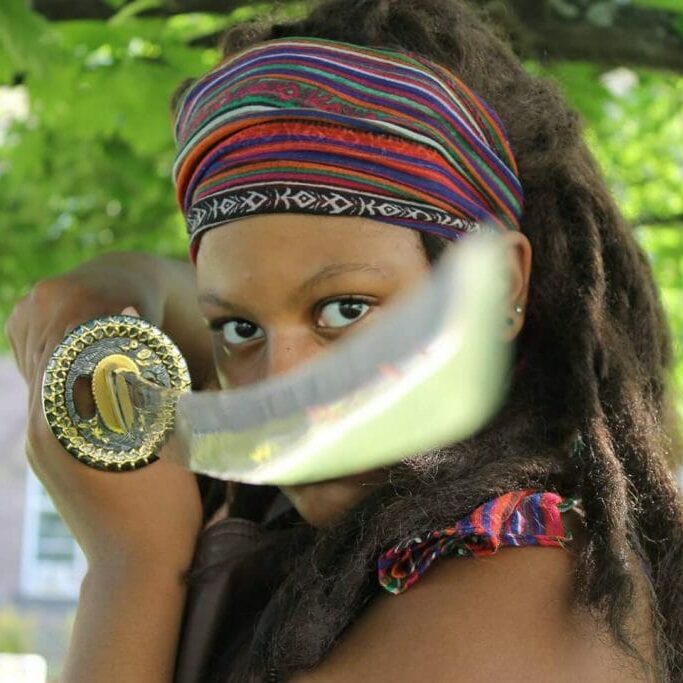
Cosplay controversy: is a costume just a costume?
What happens at cosplay doesn't stay at cosplay
On September 22, Hal-con is opening its doors to sci-fi, fantasy and gaming fans from across the Maritimes. This year, the featured guest list includes actors Elden Henson from The Hunger Games, and Tom Lenk from Buffy the Vampire Slayer. Also on the featured guest list is Kiss a Frog Cosplay, otherwise known as Alicia Renaé, an African-American woman from Charleston, West Virginia.
Cosplay is short for costume play, and those who participate dress up as their favourite characters from shows, games, comics or other popular forms of media.
Renaé’s presence is noteworthy. Her bio on the Hal-con site describes her as a “plus-sized” and “body-positive” cosplayer. Cosplay, as a community has its share of issues with discrimination, and by bringing in a plus-sized woman of colour as a featured guest, it seems Hal-con is making a statement about the inclusive and welcoming convention they aspire to be.
Raychelle Marsman is a fourth-year Dalhousie student who has been cosplaying since 2013. She’s a regular attendee of Hal-con, but as a woman of colour, she feels she has to be careful about how she dresses up for the convention.
“I’ve never gone to a convention cosplaying a character that I haven’t made or that isn’t black already yet, just because I’m terrified,” she said.
Marsman is terrified of being called out for not dressing as accurately as possible. She says that other convention attendees often give black cosplayers a hard time for dressing as characters who don’t look like them. It’s the same rationale that leads some cosplayers to darken their skin to look more like certain characters – essentially putting on blackface.
Marsman also said that as insulting as some cosplayers might be at conventions, either through their words or their costume, it’s generally not malicious.
“I doubt anyone in the community would really say anything outwardly. It’s usually in anonymity that people become really racist,” she said. In other words: online.
“Because I’m black I haven’t made an online [cosplaying] account,” Marsman said. “You get called racial slurs, you get a lot of hate mail, you get called monkey.”
Jennifer Lambe is the executive director of Hal-con, and she says she makes sure they take these issues seriously.
“We have specific statements around anti-bullying, anti-harassment, anti-hate,” she said. “We want Hal-con to be a place for everyone.”
Their policies extend beyond the convention itself, including onto the internet.
“We have a very active [Facebook] group, and we have some very active moderators as well… if there is anyone that gets really out of line, with hate speech or whatever, we’re quick to remove them from the group,” said Lambe.
Hal-con doesn’t have an official position against blackface; they instead look at each possible instance on a case-by-case basis.
“We have a policy that says any costume that is deemed offensive, we can remove that individual from the event,” said Lambe. She also stressed that their blackface policy is a work in progress, a constant conversation with both the local community and the community at large.
Blackface, or even offensive costumes in general, aren’t the only removable offense. Marsman said that as a cosplayer, especially a female one, there are other hazards.
“There’s people who have tried to do upskirt shots on me while I was just trying to walk around, there’s people who, when they come and try to get a picture with you. they’ll touch you where you really don’t want to be touched,” said Marsman.
All of those actions would get someone removed from Hal-con, said Lambe, but she only sees about one case a year that’s serious enough to warrant removal. If someone is just taking pictures of other people without permission, they will generally receive a warning before being kicked out, and that almost always stops the action.
In spite of all the negativity in the cosplay community, Marsman still says it’s overall a positive experience.
“It’s a welcoming community, it’s a place of people who all share the same interests, it’s a place where you’re not going to get picked on or bullied for what you like. And it’s amazingly fun,” she said.






